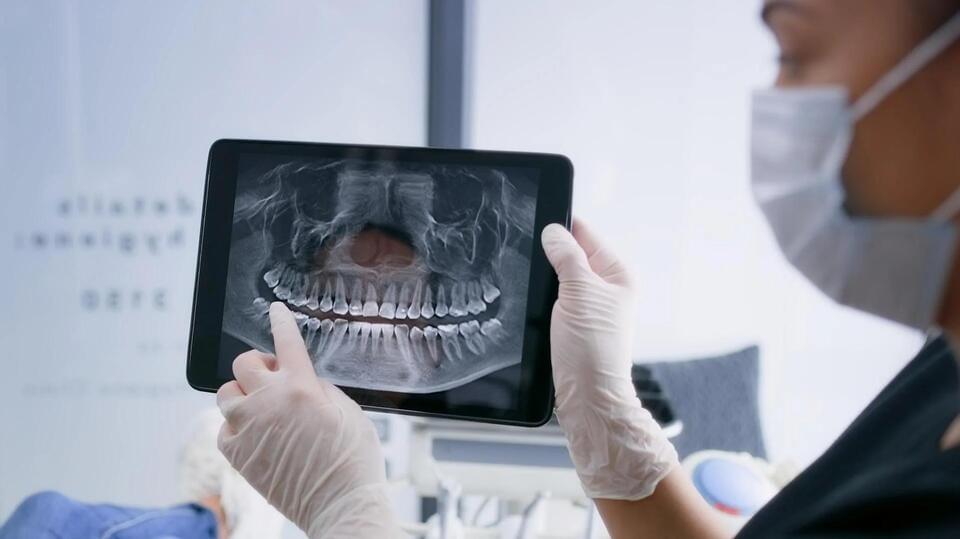Powerhouse Energy Group launches its Feedstock Testing Unit (FTU) in Wales, using pyrolysis to transform plastic waste into hydrogen.



In recent years, research has suggested a connection between oral bacteria and Alzheimer’s disease, raising concerns for those with poor dental health.
With nearly 700 species of bacteria inhabiting the human mouth, experts say maintaining good oral hygiene could benefit both heart and brain health.
There is growing evidence suggesting good oral health could help prevent Alzheimer’s disease. One study in the Journal of Alzheimer’s Disease found that people who flossed regularly had a lower risk of developing Alzheimer’s than those who did not.

A groundbreaking study suggests a simple eye test could pick up on signs if someone is at risk of having a stroke. The research suggests that by analyzing the blood vessels in the retina, it’s possible to forecast an individual’s likelihood of having a stroke.
The retinal vascular network reflects characteristics similar to those found in the brain’s vasculature. Scientists can learn a lot about a person’s overall health by examining factors like the density, curliness, and branching angles of the veins and arteries in the eye.
In an extensive study involving over 45,000 participants from the UK Biobank, researchers analyzed eye images and followed the subjects for an average of 13 years, during which 749 suffered a stroke, reports Daily Express UK.

For decades, the Turing Test was considered the ultimate benchmark to determine whether computers could match human intelligence. Created in 1950, the “imitation game”, as Alan Turing called it, required a machine to carry out a text-based chat in a way that was indistinguishable from a human. It was thought that any machine able to pass the Turing Test would be capable of demonstrating reasoning, autonomy, and maybe even consciousness – meaning it could be considered human-level artificial intelligence, also known as artificial general intelligence (AGI).
The arrival of ChatGPT ruined this notion, as it was able to convincingly pass the test through what was essentially an advanced form of pattern recognition. It could imitate, but not replicate.
Last week, a new AI agent called Manus once again tested our understanding of AGI. The Chinese researchers behind it describe it as the “world’s first fully autonomous AI”, able to perform complex tasks like booking holidays, buying property or creating podcasts – without any human guidance. Yichao Ji, who led its development at the Wuhan-based startup Butterfly Effect, says it “bridges the gap between conception and execution” and is the “next paradigm” for AI.


The best answer will be unsettling to both the hard skeptics of AI and the true believers.
Let’s take a step back. What exactly is reasoning, anyway?
AI companies like OpenAI are using the term reasoning to mean that their models break down a problem into smaller problems, which they tackle step by step, ultimately arriving at a better solution as a result.
43:10 Aubrey talks about costs.
In this episode of Becoming Young, Josh and Janae sit down with legendary longevity researcher Aubrey de Grey to explore the future of aging science and what it means for human lifespan. They dive deep into the latest breakthroughs in mTOR, rapamycin, senescence, and cellular rejuvenation, uncovering how cutting-edge research is redefining what’s possible for human healthspan.
Things we discussed…
The history of aging research and why scientists once believed aging was inevitable.
Aubrey de Grey’s new mouse studies and what they reveal about reversing aging.
Rapamycin, mTOR, and autophagy—how this pathway influences longevity.
The role of senolytics and clearing aging cells to extend healthspan.
What the future holds: Are we on the verge of radically extending human lifespan?
This is a must-watch for anyone interested in biohacking, anti-aging science, and longevity breakthroughs.
Subscribe for more expert interviews on longevity, biohacking, and peak performance!

“Hans A. Bethe, who discovered the violent reactions behind sunlight helped devise the atom bomb and eventually cried out against the military excesses of the cold war, died late Sunday. He was 98, among the last of the giants who inaugurated the nuclear age.” William J. Broad, New York Times, March 8, 2005.
Remembering Hans Bethe makes available a collection of more than five and one half hours of videos of one of the legendary figures of physics of the past century. He interprets the transcripts of secretly recorded conversations of interned German atomic scientists when they first heard of the use of the atomic bomb. Hans Bethe (pronounced BAY-tah) and Robert Wilson, a co-participant in the Manhattan Project discuss the development of the bomb. In 1993 he and friend, Victor Weisskopf, fondly reminisce about their early years as immigrants to upstate New York. Kurt Gottfried, Physics Department Chair, moderates these discussions. In 1994 Bethe describes the Manhattan Project for Cornell students, after being introduced by Carl Sagan, and entertains their questions.
This ‘…unpretentious man of uncommon gifts’, as the New York Times described him, received the Nobel Prize in Physics in 1967 for his work explaining how stars shine. In 1995 his friends and colleagues celebrate his influence and the 60 years he had been at Cornell. He continued as an active and productive researcher and published original scholarship for many additional years beyond his ‘official’ retirement. A complete list of his publications is included.

The mergers of massive black hole binaries could generate rich electromagnetic emissions, which allow us to probe the environments surrounding these massive black holes and gain deeper insights into the high energy astrophysics. However, due to the short timescale of binary mergers, it is crucial to predict the time of the merger in advance to devise detailed observational plans. The overwhelming noise and slow accumulation of the signal-to-noise ratio in the inspiral phase make this task particularly challenging. To address this issue, we propose a novel deep neural denoising network in this study, capable of denoising a 30-day inspiral phase signal. Following the denoising process, we perform the detection and merger time prediction based on the denoised signals.

Contemplate a future where tiny, energy-efficient brain-like networks guide autonomous machines—like drones or robots—through complex environments. To make this a reality, scientists are developing ultra-compact communication systems where light, rather than electricity, carries information between nanoscale devices.
In this study, researchers achieved a breakthrough by enabling direct on-chip communication between tiny light-sensing devices called InP nanowire photodiodes on a silicon chip. This means that light can now travel efficiently from one nanoscale component to another, creating a faster and more energy-efficient network. The system proved robust, handling signals with up to 5-bit resolution, which is similar to the information-processing levels in biological neural networks. Remarkably, it operates with minimal energy—just 0.5 microwatts, which is lower than what conventional hardware needs.
S a quadrillionth of a joule!) and allow one emitter to communicate with hundreds of other nodes simultaneously. This efficient, scalable design meets the requirements for mimicking biological neural activity, especially in tasks like autonomous navigation. + In essence, this research moves us closer to creating compact, light-powered neural networks that could one day drive intelligent machines, all while saving space and energy.